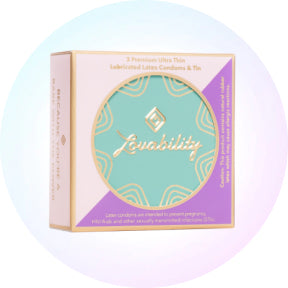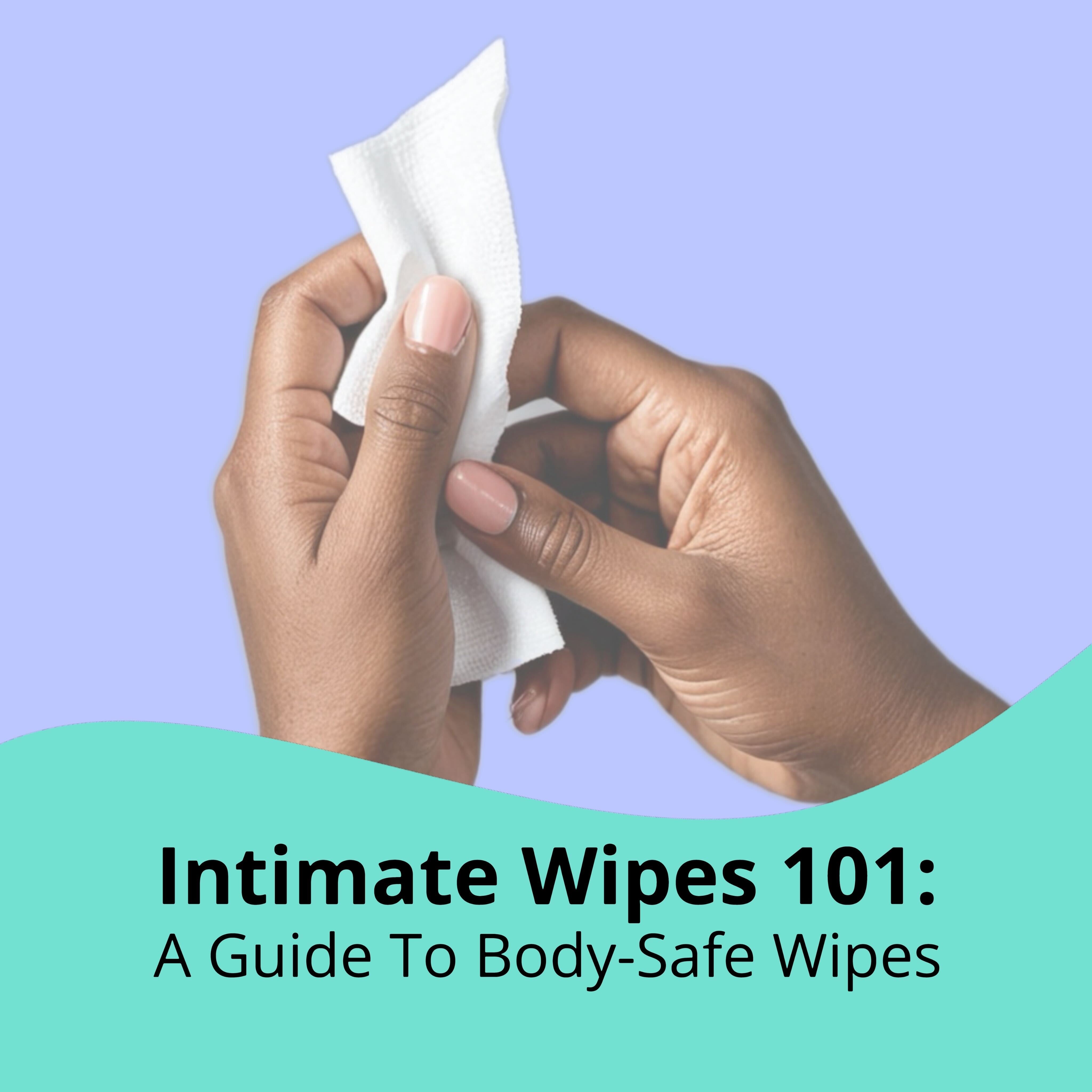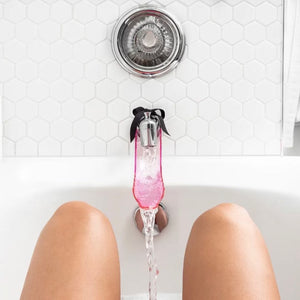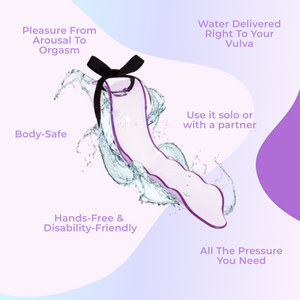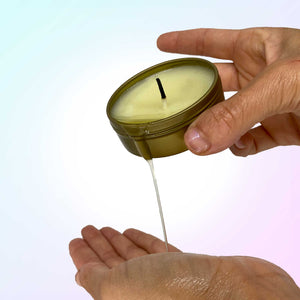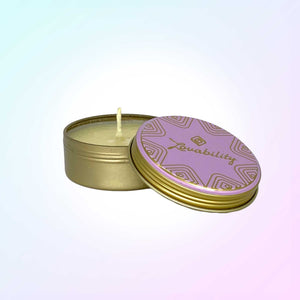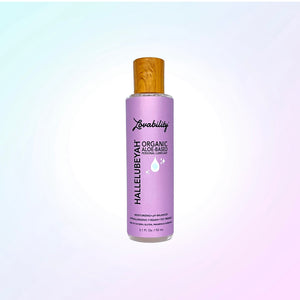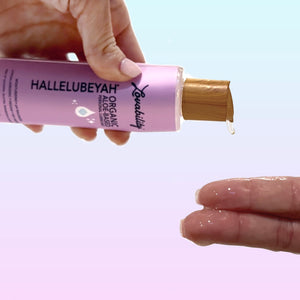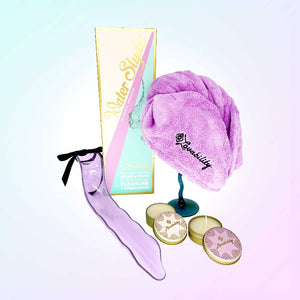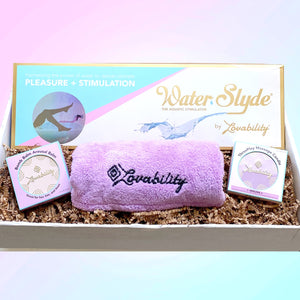While discussions around feminine hygiene products have been taboo in the past, we are seeing a shift towards openness and empowerment in taking care of one's intimate areas. Among the array of products available, intimate wipes have emerged as a convenient and effective solution for maintaining freshness when you're on-the-go.
What are Intimate Wipes?
Intimate wipes, often referred to as feminine wipes, are pre-moistened cloths specifically designed for cleaning the external genital area. They are often infused with gentle cleansing agents and sometimes enriched with soothing or moisturizing ingredients.
Unlike baby wipes or standard wet wipes, intimate wipes should be formulated with the delicate pH balance of the vaginal area in mind, making them suitable for everyday use without disrupting your natural vaginal flora.
4 Benefits of Intimate Wipes
Not all intimate wipes are created equal, but thoughtfully made, gentle, body-safe wipes offer several benefits:
- Convenience: They provide a quick and easy solution for freshening up - on your period, at the gym, after sex, etc., especially when access to water is limited.
- Hygiene: Intimate wipes effectively remove sweat, odor, and discharge, helping to maintain cleanliness throughout the day.
- Comfort: Many wipes are infused with soothing ingredients such as aloe vera or chamomile, leaving your skin feeling hydrated and soft, and offering relief from irritation and promoting comfort.
- Portability: Their compact size, especially when individually wrapped, makes them ideal for carrying in purses, gym bags, or travel kits, ensuring freshness wherever you go and whenever you need them.
What to Look for When Buying Intimate Wipes
When purchasing intimate wipes, we recommend you prioritize gentle, body-safe ingredients and consider the following factors so you're choosing a product and brand that aligns with your needs and values:
- Organic & Natural Ingredients: If you prioritize eco-friendly and chemical-free options, consider wipes made from organic and natural ingredients. Wipes enriched with botanical extracts such as aloe, cucumber, chamomile, or calendula, also have soothing and moisturizing properties.
- Avoid Harmful Chemicals: Avoid wipes containing harsh chemicals, such as alcohol, parabens, fragrances, and certain preservatives, as these can disrupt the delicate vaginal ecosystem and lead to irritation or dryness.
- Hypoallergenic: Opt for wipes labeled as hypoallergenic as they are less likely to cause allergic reactions or irritation, making them suitable for sensitive skin.
- pH Balanced: Look for wipes formulated to match the natural pH of the vaginal area, typically around 3.5 to 4.5, crucial for preventing infections and discomfort.
- Dermatologist & Gynecologist Tested: Products tested by dermatologists and gynecologists offer added assurance of safety and efficacy.
- Vegan and Cruelty-Free: Choose wipes that are vegan and cruelty-free if you prefer products free from animal-derived ingredients and not tested on animals.
How to Use Intimate Wipes
Using intimate wipes is easy:
- Choose the Right Wipe: Opt for wipes specifically designed for feminine hygiene, and free from harsh chemicals and fragrances that can irritate sensitive skin.
- Open the Packet: Tear open the individual packet and unfold the wipe.
- Cleanse: Gently wipe the external genital area from front to back, ensuring thorough cleaning while avoiding contact with the urethra or anus. Only clean the vulva, with these wipes, not the inside of the vagina, she notes.
- Dispose: Properly dispose of the used wipe in a waste bin. DO NOT FLUSH (even if it says "flushable")!
Proper Disposal of Intimate Wipes
After use, it's important to dispose of feminine wipes properly to limit, if not negate, negative environmental impact. Here's how:
- Bin It, Don't Flush It: Feminine wipes should never be flushed down the toilet, as they can clog pipes and contribute to sewage blockages.
- Wrap and Dispose: Wrap the used wipe in tissue or toilet paper before placing it in a waste bin.
- Use Biodegradable Options: Consider opting for biodegradable wipes to minimize environmental impact.
FAQs About Intimate Wipes
Is It Safe To Use Intimate Wipes Every Day?
Using intimate wipes every day can be safe if the wipes are formulated for intimate use and contain gentle, pH-balanced ingredients. However, it's essential to listen to your body and monitor for any signs of irritation or discomfort. Overuse (or misuse) of intimate wipes can potentially disrupt the natural balance of the vaginal flora, leading to irritation, dryness, or infections.
Should You Use Intimate Wipes During A Yeast Infection?
It's generally not recommended to use intimate wipes during a yeast infection without consulting with a healthcare professional first.
During a yeast infection, the vaginal area is already experiencing an imbalance of bacteria and yeast, and using wipes may further disrupt this delicate balance, potentially worsening symptoms or causing irritation. Instead, focus on treatments recommended by your healthcare provider, such as anti-fungal medications or soothing creams.
Should You Use Intimate Wipes If You Have A UTI?
During a urinary tract infection (UTI), avoid anything that could potentially irritate the urethra or introduce bacteria into the urinary tract. Using wipes may not effectively cleanse the area and could exacerbate symptoms. Drinking plenty of water and following your healthcare provider's recommendations for treating the UTI are essential.
Always consult with a healthcare professional before using any new products or treatments, especially if you're experiencing symptoms of a UTI.
Can You Use Intimate Wipes If You Have An STI?
Refrain from using feminine wipes if you have an STI, as the wipes may potentially irritate the affected area and worsen symptoms. If you suspect you have an STI, seek prompt medical attention for proper diagnosis and treatment.
How Do Intimate Wipes Differ From Other Kinds of Wipes?
Intimate wipes are pH-balanced, designed for intimate areas, removing sweat, odor, and discharge, while respecting vaginal flora. Other kinds of wipes are designed for their own specific purpose. Baby wipes, for example, are gentle, formulated for baby skin, primarily for diaper changes, while face wipes cleanse facial skin, often containing makeup removers and moisturizers. Each serves specific cleansing needs, with formulations tailored to their intended use and target areas.
Alternatives To Intimate Wipes
In many ways, intimate wipes are a luxury and should be used only as needed and for the purpose for which they are designed. With that in mind, there are several alternatives to intimate wipes - especially those moments when you're not rushed and out and about - that can likewise help maintain vulva hygiene and freshness:
- Water: Plain water is one of the gentlest and most natural ways to cleanse the vulva area. Simply rinsing with water during showers or using a peri-bottle after using the bathroom can help remove sweat, odor, and discharge without disrupting the natural balance of the vaginal flora.
- Unscented Soap: Using a mild, unscented soap specifically formulated for sensitive skin can effectively cleanse the external genital area. Be sure to rinse thoroughly with water to remove any residue.
- Washcloths or Towels: Soft, clean washcloths or towels can be used to gently cleanse the vaginal area. Opt for gentle patting rather than harsh rubbing to avoid irritation.
- Bidet: A bidet attachment on your toilet or your bathtub faucet provides a gentle and effective way to cleanse the vulva area with water.
Of course, no matter how you maintain your vaginal health, if you have concerns or experience persistent symptoms, consult with a healthcare professional for personalized guidance and recommendations.
_______________________________________
Intimate wipes are a valuable addition to any personal hygiene routine, offering convenience, comfort, and confidence throughout the day. By selecting wipes with gentle, body-safe ingredients and following proper usage and disposal practices, you can embrace feminine freshness with ease and peace of mind. Remember to prioritize your health and well-being by choosing products that support the natural balance of your intimate areas as well as the world around us.
More Articles You Might Love

Get To Know Your Vulva



